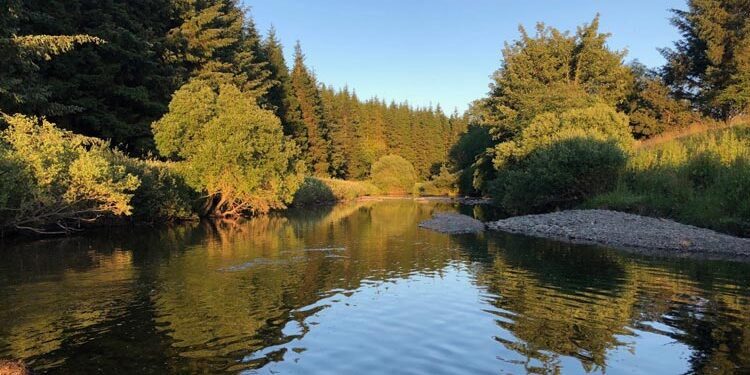The Healing Power of Nature
When despair for the world grows in me
and I wake in the night at the least sound
in fear of what my life and my children’s lives may be,
I go and lie down where the wood drake
rests in his beauty on the water, and the great heron feeds.
I come into the peace of wild things
who do not tax their lives with forethought
of grief. I come into the presence of still water.
And I feel above me the day-blind stars
waiting with their light. For a time
I rest in the grace of the world, and am free.
The Peace of Wild Things – Wendell Berry
Why is Nature Is Important for Wellbeing?
Have you ever wondered why you are drawn to nature without even realising? Looking out of a window at the sky, trees and open spaces can be enough to boost our mood. If you are fortunate to have a garden or be able to walk in parkland, woodland or by the sea, you may have noticed that you begin to feel calmer and happier. Increasingly, science is showing us that spending time in nature is very important for our overall wellbeing. From lowering stress hormones to enhancing creativity, the benefits of being in nature are vast and profound. Immersing ourselves in the natural world isn’t just good for the soul—it’s essential for the body and mind.
There is also research that also tells us that You don’t need to be outdoors to reap nature’s benefits. Even brief moments spent gazing at pictures of trees or green rooftops—or just seeing greenery from your window—can reduce stress, enhance recovery, boost attention, and elevate mood. This is especially important for those of us with restricted movement, ill health or if we live in an apartment.
On a personal level nature is very important to me. I live with a nature enthusiast and rewilding expert, and the greatest gift he has given me is simple and free! It is purely appreciating every moment of the wonder and joy of nature. It might be birds; birdsong, the colours of their plumage, their patterns, the way they raise and nurture their young, the seabirds – especially gannets diving with rocket like speed plunging into the water. It might be the colour green; the changing of the greens of trees with the seasons, from that bright vibrant green of new buds in spring, to that darker green of summer and then the reds and yellows of autumn. It might be colours of flowers, insects and the sky and landscape, or the wonder of each and every thing that has manifested in its aliveness.
For the last 5 years the beach has been my go to place for wellbeing. The best thing is getting into the sea. It feels like a magic balm for my whole body, being and soul. Whenever I swim in the sea everything that is on my mind melts away along with any stress I am holding.
If I cant swim in the sea, then just sitting on the beach watching and listening to the waves has a similar effect.
I am at my most mindful in the moment when in nature.
You might like to try this short taking in the good practice in nature.
We offer several opportunities to spend some time in nature with our upcoming Mindfulness in Nature course in July. Further opportunities to immerse in nature are on our September Introduction to Mindfulness at Samye Ling as well as our Naturally Being Retreat Weekend. On these courses we sometimes practice Shinri Yoku, (forest bathing) which is simply being in nature.
As with many ancient philosophies, science and research is providing us with evidence to suggest that being in nature has many benefits.
The evidence for Mindfulness in Nature:
One of the most well-documented benefits of nature is its ability to reduce stress. A study published in Frontiers in Psychology (2019) found that spending just 20 minutes in nature can significantly lower levels of cortisol, the body’s primary stress hormone. The researchers called it a “nature pill,” suggesting that small doses of outdoor time can have measurable impacts on mental health.
Spending time in amongst trees in woodland and forests isn’t just relaxing—it may actually strengthen your immune system. Japanese researchers coined the term Shinrin-yoku, or “forest bathing,” to describe the practice of immersing oneself in a forest atmosphere. In a 2009 study published in Environmental Health and Preventive Medicine, participants who spent time in forests showed increased levels of natural cells which help fight infections and cancer. The positive effects lasted up to 30 days, indicating that regular time in nature can boost long-term immune function.
In their book The Nature Fix, Florence Williams presents compelling evidence on how nature sharpens our thinking.
“Our brains, like our bodies, need to recover from stress. Nature offers one of the most reliable boosts to cognitive function.”
— Florence Williams, The Nature Fix
Research from the University of Michigan found that walking in a park can improve memory and attention span by up to 20%.
Human beings evolved in nature, and there’s a deep psychological pull toward green spaces—a concept called biophilia. Time in nature enhances feelings of connectedness, not only to the earth but also to other people. A 2014 study in Ecopsychology showed that individuals who spent time in nature reported higher levels of empathy and social connectedness. Nature encourages us to reflect, slow down, and connect with something larger than ourselves.
We Don’t have to go Outside to Benefit from Nature
Looking at Images of Nature or from a Window
A review of research found that simply viewing photos or videos of natural landscapes like forests, mountains, and water significantly reduces stress, lowers heart rate, increases heart rate variability, and even triggers calming brainwave patterns (alpha waves) compared to urban or blank visuals. For instance, one study showed that looking at nature images after a stress-inducing test improved autonomic (rest-and-digest) recovery more than urban scenes.
Viewing photos or videos of nature can reduce stress and lower heart rate.
Taking small breaks looking at images of nature can improve cognitive focus and reduce any errors made in mental tasks.
Viewing green space outside a window can aid faster recovery from illness and reduce pain and boost mood. One study showed that patients with panoramic natural window views experienced greater improvements in physical and mental health compared to patients with obstructed views
One particular Dutch study described looking at nature imagery or through a window views as a “mini therapy.” They found that looking at green scenes activated the parasympathetic nervous system thus reducing stress.
Research published in the International Journal of Environmental Research and Public Health cited that “Viewing green scenes may thus be particularly effective in supporting relaxation and recovery after experiencing a stressful period … a promising tool in preventing chronic stress.”
Final Thought
We can reap the restorative benefits of nature through immersing ourselves in nature outside, or through photos, videos, or simply a view from the window. For desk workers, students, and hospital patients alike, small connections to nature, whatever that might be, offers us a mindful moment to pause, connect and enjoy the benefits.
We have a playlist of Mindful Moments on YouTube you might like to try.
We would love to receive your mindful moments in nature – please send to us at membership@mindfulnessassociation.net
Jacky Seery
Further Reading & References:
- Williams, F. (2017). The Nature Fix: Why Nature Makes Us Happier, Healthier, and More Creative.
- Li, Q. (2018). Forest Bathing: How Trees Can Help You Find Health and Happiness.
- Bratman, G. N., et al. (2015). “Nature experience reduces rumination and subgenual prefrontal cortex activation.” PNAS.
- Hunter, M. R., Gillespie, B. W., & Chen, S. Y. (2019). “Urban nature experiences reduce stress in the context of daily life based on salivary biomarkers.” Frontiers in Psychology.
- Kaplan, R., & Kaplan, S. (1989). The Experience of Nature: A Psychological Perspective. Cambridge University Press.
- Yoshifumi Miyazaki. (2021). Walking in the Woods: Go back to nature with the Japanese way of shinrin-yoku
- Kjellgren, A., & Buhrkall, H. (2010). A review of the benefits of nature experiences: More than meets the eye. International Journal of Environmental Research and Public Health, 7(9), 3604–3619. https://doi.org/10.3390/ijerph14080864
- Li, D., & Sullivan, W. C. (2016). Impacts of views to school landscapes on recovery from stress and mental fatigue. Landscape and Urban Planning, 148, 149–158. https://doi.org/10.1016/j.landurbplan.2015.12.015
- Lee, K. E., Williams, K. J., Sargent, L. D., Williams, N. S., & Johnson, K. A. (2015). 40-second green roof views sustain attention: The role of micro-breaks in attention restoration. Journal of Environmental Psychology, 42, 182–189. https://doi.org/10.1016/j.jenvp.2015.04.003
- Ulrich, R. S. (1984). View through a window may influence recovery from surgery. Science, 224(4647), 420–421. https://doi.org/10.1126/science.6143402
- Annerstedt, M., et al. (2013). Inducing physiological stress recovery with sounds of nature in a virtual reality forest—Results from a pilot study. Physiology & Behavior, 118, 240–250. https://doi.org/10.1016/j.physbeh.2013.05.023
- Van den Berg, A. E., Hartig, T., & Staats, H. (2007). Preference for nature in urbanized societies: Stress, restoration, and the pursuit of sustainability. Journal of Social Issues, 63(1), 79–96. https://doi.org/10.1111/j.1540-4560.2007.00497.x


